12 Nights | CENTER OF CIVILIZATION
You will visit the following 11 places:
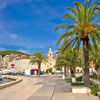
Dubrovnik
Dubrovnik is a gorgeous Croatian city on the Adriatic Sea coast positioned at the terminal end of the Isthmus of Dubrovnik. It is one of the most prominent tourist resorts of the Mediterranean and listed as a UNESCO World Heritage Site since 1979. The city is nicknamed "Pearl of the Adriatic". The success of Dubrovnik’s tourist industry has brought a certain degree of complacency and self-satisfaction. Certain aspects of the city’s appeal remain immune to tourist numbers, however, most notably the uniquely stunning setting and the unjaded straightforwardness of the Dubrovčani themselves.

Bari
Bari is a port city on the Adriatic Sea, and the capital of southern Italy’s Puglia region. It is the second most important economic centre of mainland Southern Italy after Naples, and is well known as a port and university city, as well as the city of Saint Nicholas. Bari is made up of four different urban sections. To the north is the closely built old town on the peninsula between two modern harbours, with the Basilica of Saint Nicholas, the Cathedral of San Sabino (1035–1171) and the Hohenstaufen Castle built for Frederick II, which is now also a major nightlife district. To the south is the Murat quarter (erected by Joachim Murat), the modern heart of the city, which is laid out on a rectangular grid-plan with a promenade on the sea and the major shopping district (the via Sparano and via Argiro).
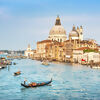
Venice
Venice is a city in northeastern Italy sited on a group of 118 small islands separated by canals and linked by bridges. The city is renowned for the beauty of its setting, its architecture, and its artwork. The city in its entirety is listed as a World Heritage Site, along with its lagoon. Venice has been known as the La Dominante, Serenissima, Queen of the Adriatic, City of Water, City of Masks, City of Bridges, The Floating City, and City of Canals. It has also been described as being one of Europe's most romantic cities. It is truly an amazing, stunning and interesting city for the adventurous to explore!
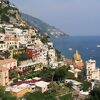
Positano
Positano is a village and comune on the Amalfi Coast (Costiera Amalfitana), in Campania, Italy. The main part of the city sits in an enclave in the hills leading down to the coast. The church of Santa Maria Assunta features a dome made of majolica tiles as well as a 13th century Byzantine icon of a black Madonna. According to local legend, the icon had been stolen from Byzantium and was being transported by pirates across the Mediterranean. A terrible storm had blown up in the waters opposite Positano and the frightened sailors heard a voice on board saying "Posa, posa!" ("Put down! Put down!"). The precious icon was unloaded and carried to the fishing village and the storm abated.

Marseille
Marseille, known in antiquity as Massalia, is the second largest city in France, after Paris, with a population of 852,395 within its administrative limits on a land area of 240.62 km2. The urban area of Marseille extends beyond the city limits with a population of over 1,420,000 on an area of 1,204 km2. 1,530,000 or 1,601,095 people live in the Marseille metropolitan area. Located on the southeast coast of France on the Mediterranean Sea, Marseille is France's largest commercial port and largest French city on the Mediterranean coast. Marseille is the capital of the Provence-Alpes-Côte d'Azur region, as well as the capital of the Bouches-du-Rhône department. Its inhabitants are called Marseillais.

Barcelona
Barcelona – Spain's enchanting capital, second largest and most populous city. It is a huge city that vibrates with life, and there’s certainly not another city in the country to touch it for its sheer style, looks or energy. It is one of the world's leading tourist, economic, trade fair and cultural centers, and its influence in commerce, education, entertainment, media, fashion, science, and the arts all contribute to its status as one of the world's major global cities. Barcelona is home to masterpieces of many great architects – the most famous of which is Antoni Gaudí.

Portofino
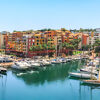
Monte Carlo
Monte Carlo, officially refers to an administrative area of the Principality of Monaco, specifically the ward of Monte Carlo/Spélugues, where the Monte Carlo Casino is located. Monaco has four traditional quarters - from west to east they are: Fontvieille (the newest), Monaco-Ville (the oldest), La Condamine, and Monte Carlo. Monte Carlo (literally "Mount Charles") is situated on a prominent escarpment at the base of the Maritime Alps along the French Riviera. Near the western end of the quarter is the world-famous Place du Casino, the gambling center which has made Monte Carlo "an international byword for the extravagant display and reckless dispersal of wealth". It is also the location of the Hôtel de Paris, the Café de Paris, and the Salle Garnier (the casino theatre which is the home of the Opéra de Monte-Carlo).

Taormina
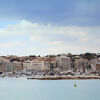
Civitavecchia
Civitavecchia is a town and comune of the Metropolitan City of Rome in the central Italian region of Lazio. A sea port on the Tyrrhenian Sea, the name ''Civitavecchia'' means "ancient town". The modern city was built over a pre-existing Etruscan settlement. The massive Forte Michelangelo was first commissioned from Donato Bramante by Pope Julius II, to defend the port of Rome. The upper part of the "maschio" tower, however, was designed by Michelangelo, whose name is generally applied to the fortress. North of the city at Ficoncella are the Terme Taurine baths frequented by Romans and still popular with the Civitavecchiesi. The modern name stems from the common fig plants among the various pools. And also next to the town is the location of the cruise ship docks. All major cruise lines start and end their cruises at this location, and others stop for shore excursion days that allow guests to see Rome and Vatican sights, which are ninety minutes away.

Argostoli
Argostoli is a town and a former municipality on the island of Kefalonia, Ionian Islands, Greece. It has been the capital and administrative centre of Kefalonia since 1757, following a population shift down from the old capital of Agios Georgios (also known as Kastro) to take advantage of the trading opportunities provided by the sheltered bay upon which Argostoli sits. Argostoli developed into one of the busiest ports in Greece, leading to prosperity and growth. The 2011 census recorded a population of 10,633 in the Argostoli municipal unit. Its largest towns are Argostóli (pop. 9,748), Razata (507), Dilináta (496) and Kompothekráta (449).









